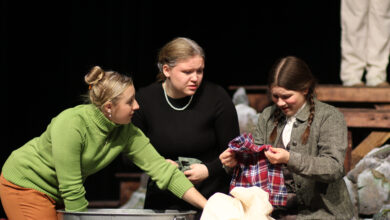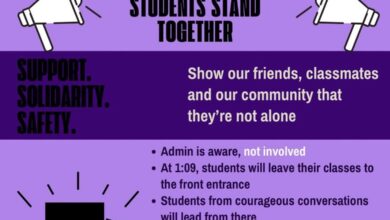Cafeteria options force students to make educated choices
Many junk food options have become available in the cafeteria including Little Debbie Snacks, gummy bears, and ice cream bars. Just as many healthy options are available, but many students seem drawn to the less healthy options. In a society where people are becoming more and more aware of the health risks that junk food poses, what actions are being taken to give younger generations alternative options?
“In the eight years since I’ve worked here, healthy options have been made available to students just as often as unhealthy,” said Cafeteria Staff Member Lynnette Neumann. “The addition of the salad bar was huge. I put it together because it’s important to eat fresh fruits and veggies. What you have to understand is that the kids request the junk food. We have to give you some options since you can’t leave the campus for lunch.”
Cafeteria staff made sure that for every unhealthy choice there was also a healthier option.
“I’m a parent and I know that it’s all about moderation,” said Cafeteria Staff Member Katie Lohse. “Instead of food that’s completely bad we have fat-free fruit snacks, 100 calorie packs, water, and Gatorade. It’s your choice to eat healthy.”
Health classes also took the initiative to educate students about the options they had when making nutritional choices. They discussed the negative aspects of eating food full of fat and empty calories. They also were taught that not all fatty foods are bad, contrary to some beliefs. Fat is a necessity in one’s diet, therefor it is okay to include junk food in the diet in small proportions.
“I teach the students to eat 90/10,” said Health Teacher Mary Bremmer. “It means eat 90% healthy food and then there’s room for 10% junk food in a day. The cafeteria does a great job, time and serving wise. I think most people are aware of health risks but they prefer unhealthy food because it takes less time, costs less, and tastes better.”
While students may make bad nutritional choices, they are still being educated on risks and outcomes more than ever before. This is being done as an attempt to better people’s health and lengthen their lives, starting with younger generations.
“I think kids are becoming more aware,” said Neumann. “Younger kids are much more educated than my generation was at your age.”





